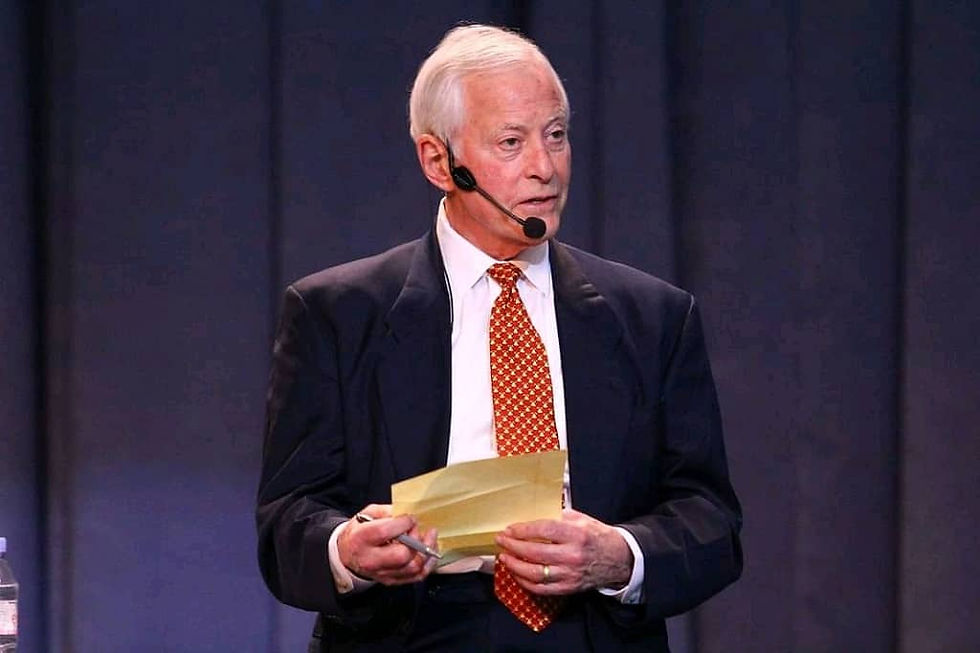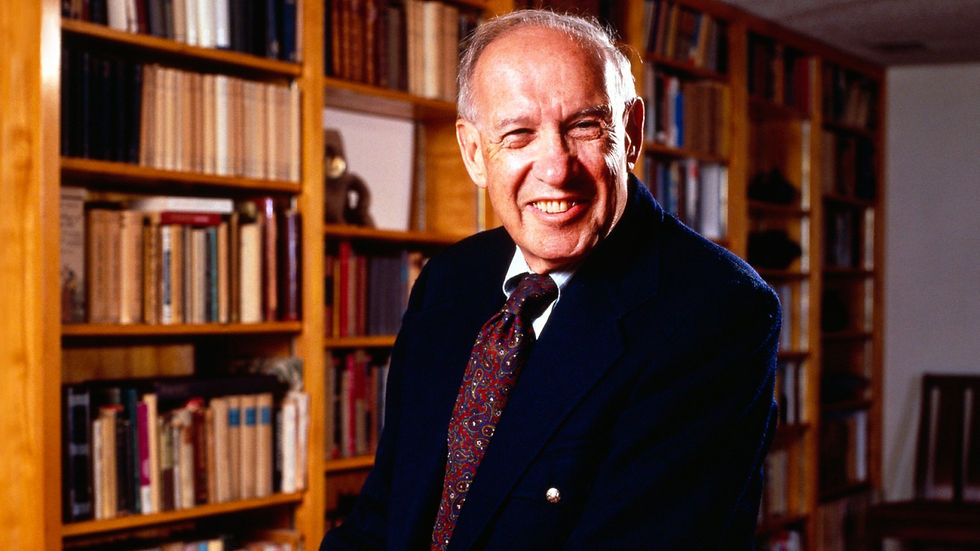8 Influential Figures on Time Management (& What They Say)
- Ally
- Mar 24, 2023
- 5 min read

Time management is a crucial skill that helps individuals achieve their goals and lead a productive life. Many influential figures have shared their ideas and techniques on managing time efficiently. In this post, I quickly explore eight of the most influential figures on time management and what they have to say about it, to act as a sort of interactive and useful recap for you. Hope you enjoy!
1. Dr. Stephen Covey


Dr. Stephen Covey is a renowned author and businessman known for his best-selling book, "The 7 Habits of Highly Effective People."
Covey emphasized the importance of prioritizing tasks based on their urgency and importance and I actually summarised his main work in this full instagram post.
According to Covey, there are 7 habits that derive from natural laws and have different levels of difficulty, which we should all try to follow to better ourselves, on an individual level but also collective level. Achieving the 7th habit "Sharpen the Saw" should be what any person looking to be successful in any field strives for.
Covey published the first version of the 7 habits book back in 1989 and has influenced the whole self-improvement field. His son Sean Covey has leveraged this success, and is now leading the FranklinCovey course platform, where you can get insights and directly trained on the 7 habits, to get extra help as to how to implement those in your life.
The key is not to prioritize what's on your schedule, but to schedule your priorities.
Amen to that!
2. David Allen

David Allen is a productivity consultant and the author of the book "Getting Things Done." He introduced the "GTD" or "Getting Things Done" method, which involves capturing, clarifying, organizing, reflecting, and engaging with tasks.
According to Allen, the key to effective time management is to clear the mind of all clutter and distractions and focus on completing one task at a time, and I can definitely vouch for that since avoiding multi-tasking is also one of my biggest advice to my clients.
There are many quotes I love from this author but perhaps the most impactful one is:
"You can do anything, but not everything."
3. Brian Tracy

Brian Tracy is a motivational speaker and the author of the book "Eat That Frog! 21 Great Ways to Stop Procrastinating and Get More Done in Less Time."
He coined the phrase "eat that frog," which means to complete the most challenging task first thing in the morning. I explained everything you need to know about this method in this instagram post.
Tracy believes that the most successful people are those who prioritize and complete their most critical tasks before anything else and I most definitely convey the same message to my clients.
"Successful people are always looking for opportunities to help others. Unsuccessful people are always asking, "What's in it for me?""
4. Timothy (Tim) Ferriss

Timothy Ferriss is a successful entrepreneur and the author of the book "The 4-Hour Work Week."
He introduced the concept of "outsourcing" and delegating tasks to others to free up time.
Ferriss also recommends batching similar tasks together to increase productivity and uses the 80/20 rule quite religiously.
"What we fear doing most is usually what we most need to do."
5. Peter Drucker

Peter Drucker is a management consultant and the author of several books, including "The Effective Executive - The Definitive Guide to Getting the Right Things Done."
He emphasized the importance of planning and scheduling tasks to achieve long-term goals. Drucker recommended setting specific objectives and allocating time for tasks based on their importance and urgency.
“If you want something new, you have to stop doing something old”
6. Laura Vanderkam

Laura Vanderkam is a time-management expert and the author of the book "168 Hours: You Have More Time Than You Think."
Thought-provoking on purposes, she encourages individuals to track their time to first realise that they have ENOUGH contrary to what they might think, and also understand where they use it. The next steps according to Vanderkam is then to identify areas where they can be more productive. Vanderkam also recommends creating a schedule and allocating time for both work and personal activities.
“I don’t have time’ means ‘It’s not a priority.’ We always have time for what matters to us.”
7. Tony Robbins

Tony Robbins is a motivational speaker and the author of several self-help books. He emphasizes the importance of having a clear vision of one's goals and the motivation to achieve them.
Robbins recommends breaking down big goals into smaller, achievable tasks and prioritizing them to achieve success.
"It's not knowing what to do; it's doing what you know."
Want to get an idea of how Robbins talks and what about? I really liked this 1-hour podcast he did with Timothy Ferriss (also in this list) about "Life Hacking":
8. Ali Abdaal

Ali Abdaal is a productivity-focused YouTuber who has gained popularity for his videos on time management and productivity.
On his YouTube channel he shares everything he continuously learns about time management over time and which methods worked for him and why, and in the courses he launched on Skillshare, he goes in more details into each of the methods he uses, giving key takeaways and concrete examples.
He emphasizes the importance of setting goals and breaking them down into small, achievable tasks. Abdaal recommends using the "Pomodoro Technique" to increase productivity. He also emphasizes the value of prioritizing tasks and focusing on the most important ones. Ali also suggests using tools like time-tracking apps and journaling to stay organized and maintain productivity.
Here is one of my favourite videos of his about what he learned about time management:
In conclusion, I want to say that even though these people have become influential in the field of time management, it does not mean they hold sacred and somehow secret wisdom about the topic: time management principles can be figured out with simple logic, and you might already apply lots of them without realising it.
They might be influential figures, but it is important to always remember that they too struggled and probably still struggle with some aspects of time or life management: nobody’s perfect, nobody has it all figured out, and everybody has ups and downs with their organisation.
While these people and coaches like myself can offer guidance, none of us offer a one-size-fits-all solution: each of us has a specific take on things, to apply what we understand of time management to specific fields.
For instance Ali has a specific view on time management applied to studies in medical school, while I personally have a valuable input to share on time management applied to language learning.
Hope you enjoyed today's post, and don't forget to give it a like, leave me a comment or share it on social media if you did!










Comments